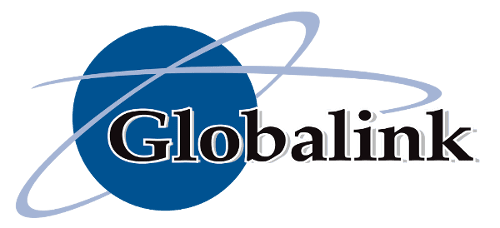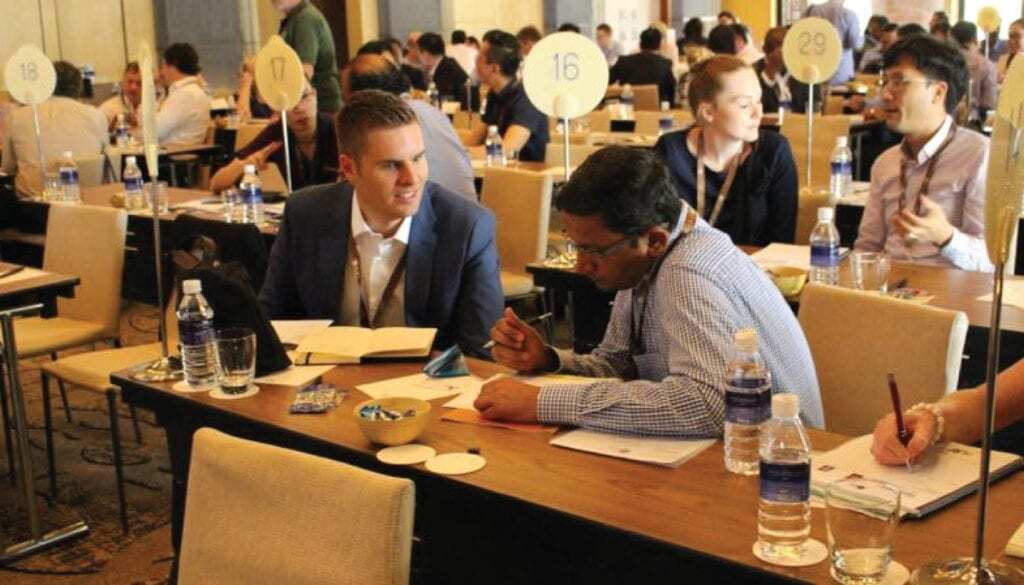Mr. Bill Siemens
President
Tell us about The Globalink Network. When were you established?
We established The Globalink Network in January of 2002, making us a little over sixteen years old and one of the older networks in the business. Due to the Globalinkg network filling up, we established our second network, The Global Value Network, four years ago and it’s been building nicely.
The function is the same for both. Our first function is to help companies grow their worldwide agency business for less money, in less time and with far less risk than doing this all in-house. Our second function is to partner with our members to help them increase capabilities, revenues and profits.
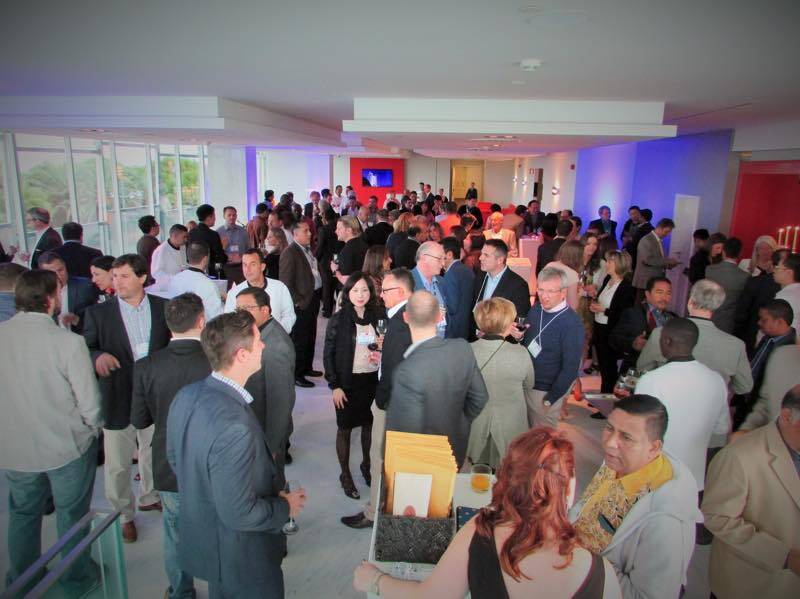
How many members do you currently have and representing how many countries?
We are about two hundred companies (not locations, which often get counted as members) in roughly eighty five countries.
The ‘how many members’ questions are tricky for two reasons. There aren’t apples-to-apples comparisons out there as these are counted differently from network to network. Secondly, focusing on numbers of members can be misleading when it comes to the value of a network. There is a myth out there that more members means more business, and in fact forwarders find that this isn’t always the case, after wasting considerable time and money.
There are a number of networks out there and, according to my sources, not a week goes by that a new invitation to a network is not received by the average freight forwarder. Why should a potential member choose your network?
You are right, the industry is approaching a saturation point, which brings all kinds of negative craziness with it.
A company should only join any network, if that network can explain how they can hope to see a return on that investment. If that explanation is vague or filled with hyperbole about quality, use common sense and run for the hills. Picking a bad network is a really expensive waste of time and may preclude the opportunity to get into a really good one.
We have a long and consistent track record of success and member retention and a reputation for innovation and integrity. We don’t promise or imply that you will get business if you join us, because that speaks to a philosophy of ‘something for nothing’ that just doesn’t work in life. We offer a proven and effective agency sales tool and if you use it you will get a return on your investment. This tool is built on the foundation that good relationships build good business.
No one disagrees with this. We limit membership to two for most countries and we demand and enforce high standards. We’re one of very few networks that actually measure quality and provide our members with continual feedback about it. Our website is built on the LinkedIn model, with loads of communication and relationship building tools and we provide very responsive support and communication with our members.
As to partnering with our members, we are in the process of rolling out tools that instantly provide revenue to our members and with other programs we make it easy for members to discount or remove their membership dues from one year to the next. We’ve been talking about industry disruption at our meetings for over six years now, and at our upcoming meeting in April we will be rolling out more tech based tools than any network in the industry, period.
What kind of value added services do you provide to members?
For us it starts before you even join. We make sure companies understand that sales is sales, and that it takes a sales effort to get a return. It says right on our website that ‘waiting and hoping is not a strategy’. Once members join, we have a series of videos that help in developing a sales strategy and provide input and ideas on how to build this business. As I said, we have a quality measurement tool that loads right into our directory, which helps to raise quality overall.
Also as I said, we are in the process of rolling out a whole series of tech related tools, like a mutual airfreight trading platform (lowers costs, provides instant rates and airfreight credits and discounts), a blockchain based Bill of Lading (faster, less risky, no courier costs), a network pay platform (faster, no bank fees) and a mobile network app. There is a truck load of value added in here, not to mention the ability for our members to receive credits against their membership costs and come out ahead money wise.
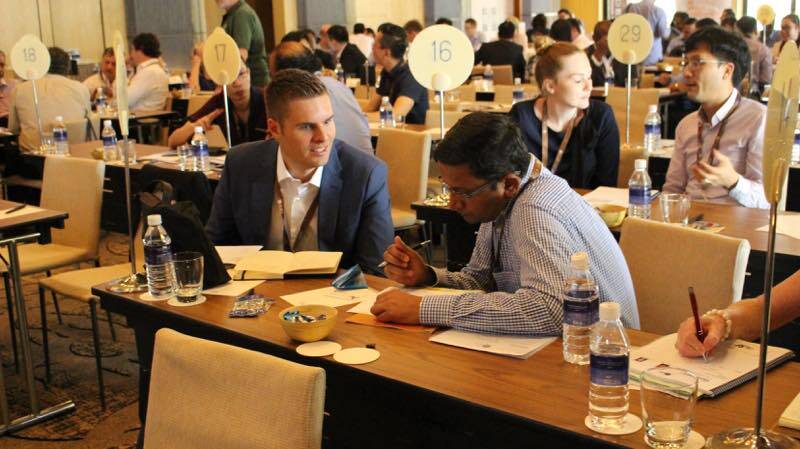
Communication is key these days and in order to compete with the global players there’s no doubt that members must work together on many levels. What plans do you have in store for your members in the future in order to facilitate easier and closer communication and cooperation?
We totally re-wrote our website last year to become a communication tool. There are several ways that members communicate with each other and we provide an agent-to-agent CRM right in the directory to help track and follow-up.
Some networks try to build everything in house and end up with dated and inferior solutions as things are just moving too fast. We have always collaborated with those on the cutting edge and have been the first to experiment with tools and programs as they come up, and we will continue to do so. For example, we were one of the first networks to have Freightos speak to our group and we were one of the first to have IATA discuss their payment program some years ago. We have lots of examples.
I think our new mobile app will greatly enhance member communication and we’ll see how it goes and how to make it better.
There is a famous saying that there is no free lunch – what is the membership fee normally to become part of your network and how does one go about applying? Do you have any restrictions on the number of members you allow?
Actually, with the saturation that I discussed early on, it might appear that free lunch is being served and unless people see value it always comes down to price or lack of price.
We’re not the most expensive but we get told we’re too high all the time. What short-sighted forwarders neglect to see is that if there is little or no revenue, there is nothing to support all the claims and promises such a network puts out. Common sense rules.
We charge $2300.00 for one office for Globalink and $2,000 for one office for Global Value, and have done so for six years now.
Its easy to apply. It can be done right on our website under ‘JOIN US’ and you must supply three forwarding references from outside your country, which we will contact and investigate. Our members are all given a chance to comment and we don’t recruit multinationals or members in more than two continents.
Unfortunately, companies under four years of age need not apply and we only allow two members for most countries, based on GDP. Fortunately, Global Value being newer means it still has many openings and both networks work on the same proven model. We believe bigger is not better when it comes to building relationships.
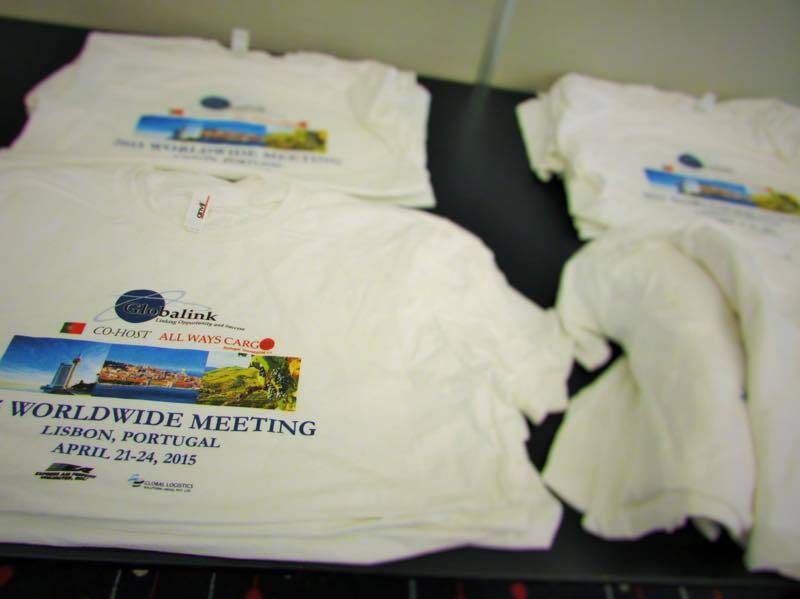
What recommendations to you have for forwarders as they approach network participation?
I recommend common sense. A network should tell how you will get a return on this investment. If a network claims they’re different, they need to say how, exactly. If they tell you it’s quality, then what do they mean by this vague word, and how does that translate into specific programs? In the end, what does any given network bring to the table that is different from everyone else and how will it help you build your business?
It takes one to know one, as the saying goes.
Can you tell us about your own background in freight forwarding and logistics?
Sure, I graduated cum laude with a degree in international politics and after two foreign service internships, I found out about freight forwarding.
I started in the business in 1976, trained with a company called Four Winds and then in 1977 I went to Jeddah, Saudi Arabia, where I set up their offices there. After a year I returned and in 1981 I set up my own forwarding company called Royal Forwarding. We sold that and a warehousing business in 1989 and since then I’ve started and run other companies and worked in the industry in senior sales management. I’ve seen the business from both the USA and overseas and got into the network business in 2002.
Do you also host conferences where members can meet each other?
We hold one conference each year for each network, back-to-back at the same hotel. We have a few members in both and we encourage members of both networks to get to know each other. For some it’s like two networks in one.
Where is your office located?
Our headquarters are in Oceanside, California, we have an office in Los Angeles and an employee in the Philippines.
Finally, tell us why you decided to establish a network of this kind? Also how is best to get in touch with you for more information?
Having run small forwarding companies, I had constant concerns as to what was going on with my agents and concerns about getting paid. I was too busy to stay up with the cutting edge developments in the industry and never really wanted to build this business as it was always a bit risky. Now, however, I actually see that building one’s agency business is a very important strategy to diversify one’s revenue streams and product offerings, which is a survival technique for the years ahead. Remember the travel agents?
I would love to hear from you at my email, bsiemens@glvnet.com
